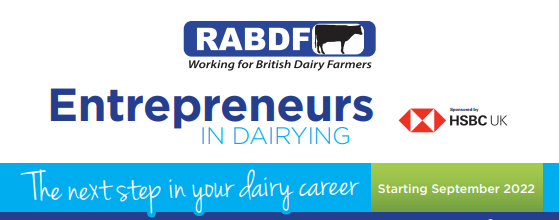The Down to Earth regenerative farming event has been hailed as one of the most ‘influential agri-food events to take place this year’ after 1,500 visitors attended the inaugural event this week (15 June).
Almost 1,500 farmers, industry representatives, and 200 exhibitor personnel were at the one-day event organised by the RABDF and hosted by dairy and beef farmer Tim Downes and his family in Shropshire.
More than 40 leading experts covered topics from basic principles of regenerative farming to specific details on agroforestry, soil health and grassland management.
Professor Jude Capper opened the event with her inspiring talk on regenerative farming and its principles. She stressed the importance of how soils are central to the food we eat and the need to protect them.
“Soil is a finite resource that takes hundreds of years to build up, so we must protect it. Almost all the food we eat comes directly or indirectly from the soil.”
She explained how regenerative farming wasn’t prescriptive, with its principles applicable to every farm worldwide. She also described how livestock are an integral part of a sustainable system.
“In terms of nutrient cycles and circular agriculture, livestock have a real part to play in a food secure, sustainable future.
Using the acronym IDEAL, she said regenerative agriculture was:
- Inclusive- for everyone
- Diverse- can be adopted across different climates, regions and livestock
- Evidence-based- so farmers can show a difference is being made
-Aligned- with individual farmer goals
-Life-long learning
Keynote speaker Stephanie Race, founder and CEO of Earth Labs, followed on from Prof Capper and explained how adopting some regenerative farming principles could help farmers become less exposed to the turbulent markets.
Ms Race said: “Today, livestock farmers are faced with increasing costs of fuel, feed, and fertiliser, that when coupled with more frequent extreme weather events, results in pressure on farm profitability. However, we should view this as an opportunity for regenerative agriculture to de-risk livestock farming to enhance soil health and biodiversity while creating the foundation for farm profitability through nutrient independence.
She added: “While regenerative agriculture is not a one size fits all approach, farmers can take this opportunity to look at how they can reduce their reliance on synthetic fertiliser and supplementary feed.
“Farmers that grow more grass forage as feed and leverage manure, legumes, cover crops and organic amendments to improve soil health and fertility can overcome dependencies on high-cost inputs. We see this dynamic as a shift to self-reliance being encouraged by disruption in the global fertiliser market, given the war in Ukraine. The outcomes to build soil health as a basis of delivering nutrients to crops and livestock create a buffer to extreme weather events caused by climate change, “she said.
John Allen from Kite Consulting told delegates to ‘view regenerative farming as part of your future’. He said circular farming, which focuses on using minimal external inputs, closing nutrients loops, regenerating soils, and minimising the impact on the environment, would see more mixed farming in the next 5-10 years.
“Dairy farmers will be growing crops and will likely see more cows in the east too. Mixed farming is fantastic. However, now we are getting environmental constraints that means we will have to find extra land to grow crops and have livestock, but you will be able to farm the land.”
The RABDF would like to thank all of the sponsors, speakers, exhibitors, visitors and the event’s host Tim Downes, who helped make such an event possible.
RABDF Managing Director said: “This level of attendance at an inaugural event is fantastic. It shows the thirst for knowledge on regenerative farming and how eager farmers are to adapt their businesses, so they are fit for the future.”.
About RABDF
RABDF is the sole UK charity focussed on the unique needs of milk producers and the only dairy organisation representing farmers that holds a Royal Warrant.’
More information
Sarah Alderton, farmgatemedia@outlook.com, 07739969198



